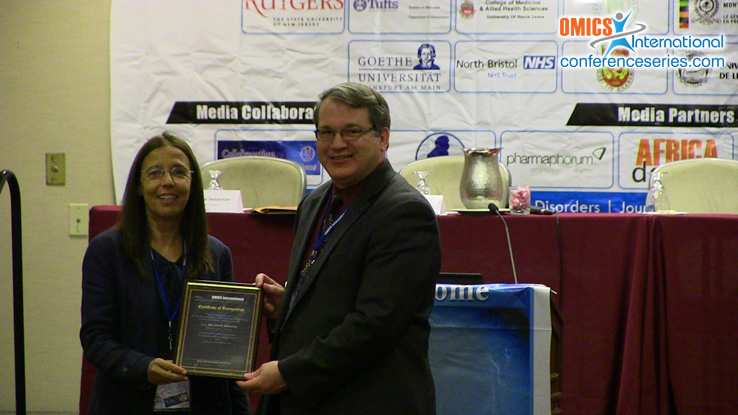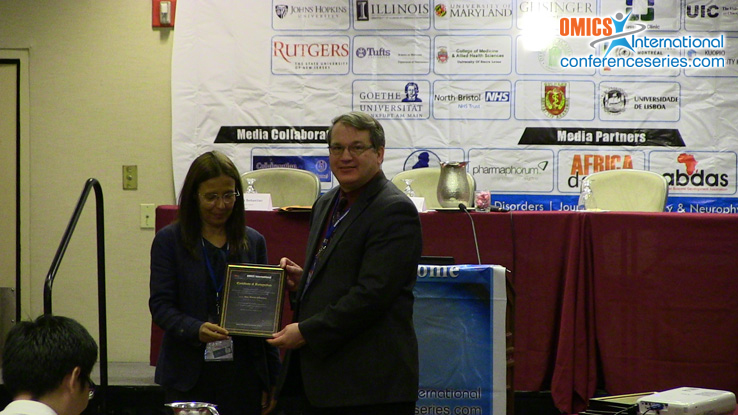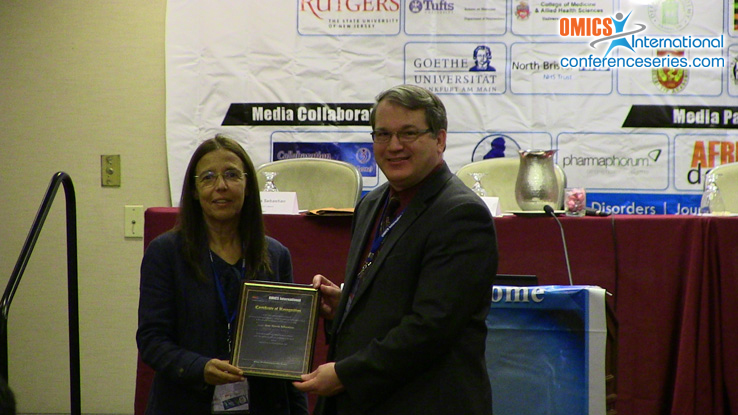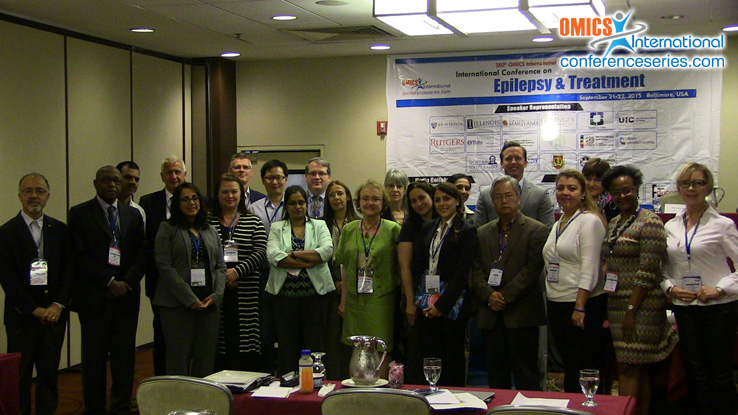
Ana Maria Sebastiao
University of Lisbon, Portugal
Title: Adenosine modulation of signaling at the tripartite synapse: Implications for Epilepsy
Biography
Biography: Ana Maria Sebastiao
Abstract
Adenosine is an endogenous anti-epileptic substance, known for its ability to inhibit excitatory synaptic transmission. I will focus on recent work by our group aiming to elucidate how high affinity A1 (A1R) and A2A (A2AR) adenosine receptors affect not only excitatory but also inhibitory transmission at the hippocampus. A2ARs can directly interfere with the life-span of GABA at synapses, since GABA transport is facilitated by A2ARs in nerve endings and astrocytes, where A1R and A2AR act as tetramers to fine tune GABA uptake. A1R inhibits the function of GABAA receptors localized at perisynaptic/extrasynaptic compartments in excitatory and a subset of inhibitory neurons, being involved in the control of persistent tonic GABAergic responses. A2A Rs influence the GABAergic input to a subset of inhibitory neurons and promote synchronous pyramidal cell firing in hyperexcitable conditions. In addition, A2ARs enhance extrasynaptic AMPA receptor mediated responses, allow the sustained recruitment of calcium-permeable AMPA receptors after ischemia, leading to a long-lasting facilitation of excitatory synaptic transmission and trigger neurotrophic factor actions upon synaptic plasticity. These actions of adenosine contribute to fine-tune neuronal activity and to set the stage for plasticity, eventually influencing seizure-induced aberrant plasticity.




